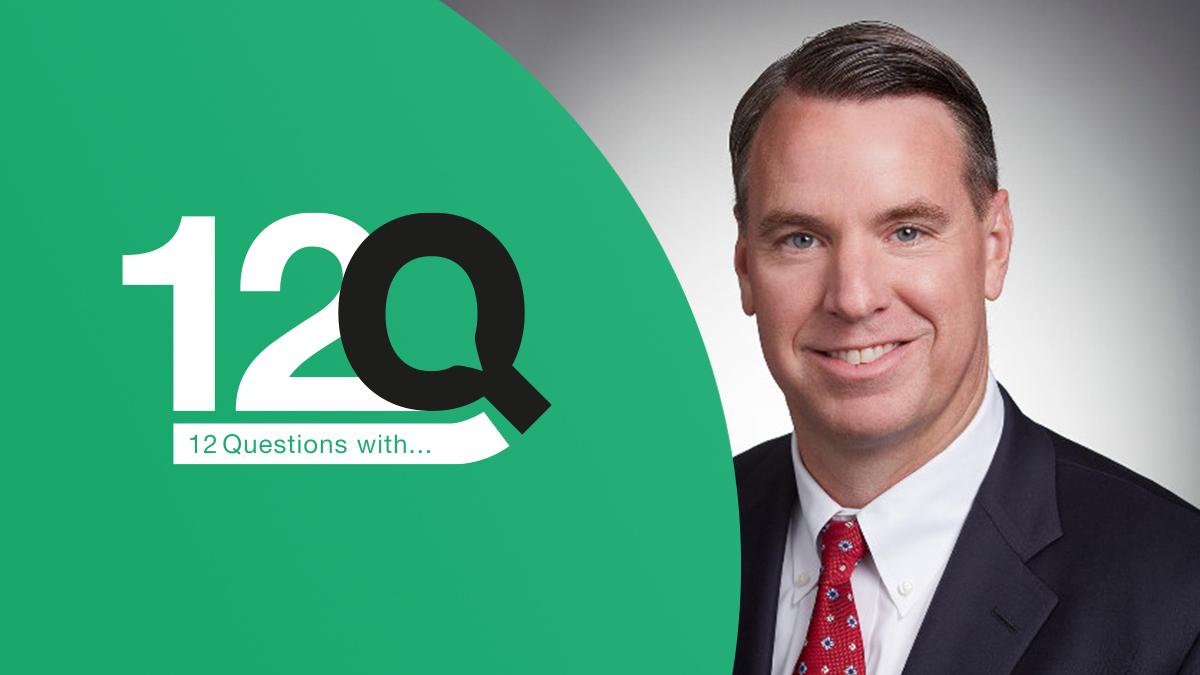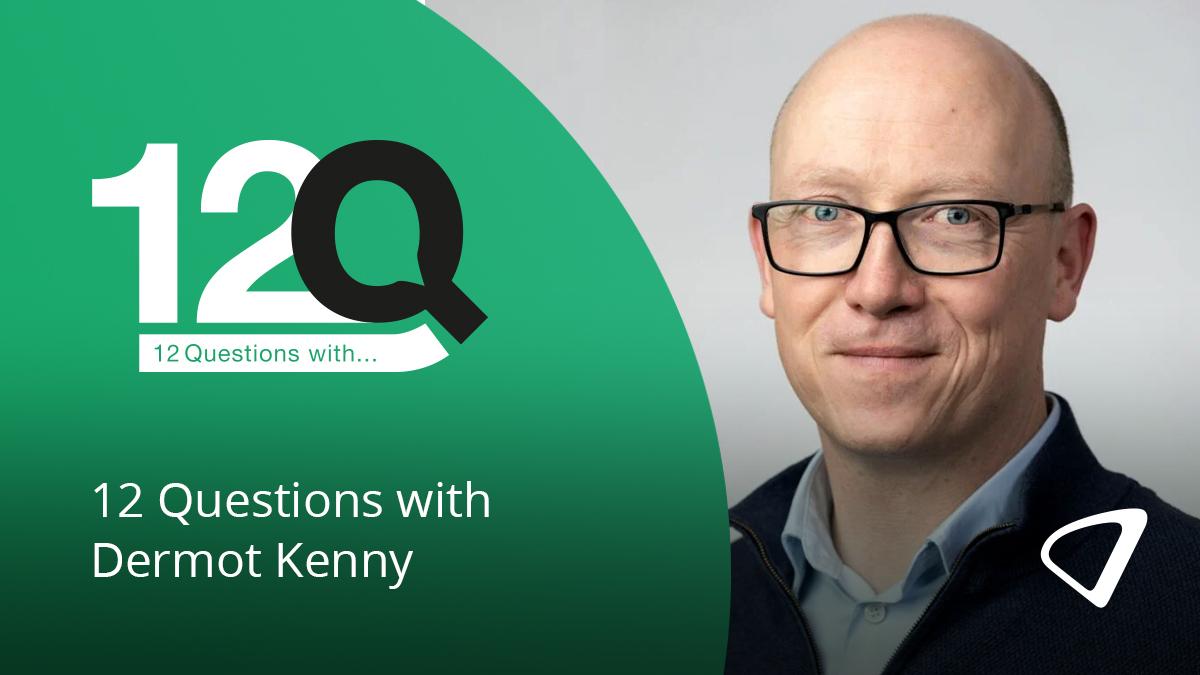12 Questions with Peter Wickersham

Peter Wickersham is the Vice President and General Manager of Gilead Sciences UK & Ireland, and a leader in HIV treatment, liver disease, and oncology. With over 25 years in healthcare, working in both pharmaceuticals and pharmacy management, Wickersham is an accomplished commercial leader with extensive business experience and a comprehensive understanding of the entire pharmaceutical landscape – from early-stage clinical development to the commercial launch of transformative therapies and product lifecycle management.
What are the main responsibilities of your current role? It has been an incredible opportunity to take on the role of General Manager at Gilead UK & Ireland – not only for the chance to lead impactful change, but also for the broader difference we can all make together. My role focuses on guiding an exceptional team to deliver meaningful improvements, both through our contributions and by addressing systemic challenges in the healthcare environment. A key priority is collaborating with the government, health services, patient organisations, and others to create lasting and meaningful improvements in care for everyone who needs them.
What is your background prior to this role, and how did it prepare you for the work you do now? My career in healthcare has provided experience in pharmaceuticals and pharmacy management. Starting as a biostatistician in clinical development, I built a solid foundation for future roles. Before becoming General Manager of the UK & Ireland affiliate at Gilead, I led US Market Access and Gilead’s Liver Disease/COVID-19 Business Unit, gaining expertise from drug development to commercial launch. This experience informs my work in this dynamic market, where I have learned that innovation and collaboration are key to overcoming challenges and driving progress.
What motivates you about working in pharma? For me, it’s all about the science and serving patients. The most rewarding part of my work is the opportunity to deliver innovative treatments to those who need them. At Gilead, I am constantly reminded of the critical importance of what we do. Every day, I am inspired by the continuous stream of innovation and advances that have the potential to transform patients’ lives.
What are your biggest short-term goals for this year and next year? In my first year in the affiliate, I have been really focused on hitting the ground running. The three areas I am most focused on are providing ongoing education for healthcare providers on our innovative portfolio in HIV, oncology, and liver disease. We think big: ending the HIV and HCV epidemics, as well as getting transformational therapies in oncology to patients, are key areas of focus. We aim to bring new therapies in HIV treatment and prevention, liver disease, and cancer in the coming years. The UK is a complex healthcare environment, but our priority is to create a stable foundation that enhances our ability to deliver reliable, patient-centred care in the years to come.
What are your biggest long-term goals for 5 years or 10 years from now? By achieving the short-term goals, I aim to establish the UK and Ireland as vibrant and sustainable markets for delivering innovative medicines in the long term. We need to work together to nurture a pharmaceutical industry that supports healthcare advancements while prioritising health equity to ensure that all patients can access essential therapies in the years to come. Innovative medicines can not only transform individual health, but also have the potential to contribute positively to society and the economy in the long term. We must always keep that in focus.
What excites you most about current industry trends? I love this question! My answer is straightforward: the incredible therapeutic advancements and personalised medicine. We are in a golden age of innovation, shifting from treatments designed for entire populations to those tailored to individual genetic profiles. This transition toward personalised medicine fascinates me. I also believe that the rise of AI will accelerate this transformation, enhancing our ability to target research and treatments with greater precision. Bottom line? The next 10 years will be very exciting.
How do you foster diversity in your workplace? Fostering diversity isn’t just important – it’s an absolute priority. As leaders, we have a responsibility to model inclusive behaviour in all aspects of our work. Whether that means ensuring diverse representation within our organisation, or ensuring we listen to a diverse range of views and opinions beyond our walls. It enriches our minds and our impact. For Gilead, in particular, we have a deep heritage in considering the needs of people from diverse and often complex backgrounds. We have learned so much and we must apply that to our business, and to the challenges in front of us.
How do you promote patient-centricity in your workplace? Everything we do is ultimately centred around the patient. We actively engage with both patients and healthcare professionals to stay connected with those we support, with many team members bringing valuable first-hand or lived experience. Our commitment is further extended through the Gilead Fellowship and Medical Grants Programme, which funds projects in HIV, cancer, invasive fungal disease, and viral hepatitis to support both community organisations and healthcare professionals. Since 2008, more than 360 initiatives across the UK and Ireland have received support, driving innovative care and making a lasting impact.
What has changed most about the industry since the start of your career? The most transformative shift I’ve witnessed is the rapid acceleration of science and technology. Starting my career 25 years ago – and even reflecting on the past 15, 10, or even 5 years – the tools at our disposal have evolved at a remarkable pace. This technological revolution has reshaped how we connect, learn, and innovate. Now, more than ever, we can engage on a more personal level, fostering richer, immediate connections that empower us to collectively push the boundaries of healthcare.
What advice would you give to a young person starting out in your field? My advice is to enter with a genuine passion for making a difference in patients' lives. You’ll need to be ready to work in high-performing, collaborative teams, and embrace every experience with a ‘sponge’ mentality. Stay curious, eager to learn, and be ready to seize opportunities when they arise. And finally, work very, very hard!
What are your hobbies? What do you do in your free time? I’m devoted to my family and have been married for over 25 years. Since moving to London last year, I’ve been passionate about getting to know the UK and Ireland. I love learning about what makes the UK and Ireland so special, especially their unique cultures, food, and events. In my free time, I enjoy discovering new restaurants and attending exhibitions.
What sports do you follow and who do you root for? I’m enjoying diving into the local sports scene and have been learning the rules of cricket and rugby, which has been both a fun challenge and a great way to connect with the local culture here. I have a particular interest in football, and I’m a devoted Chelsea supporter. Fortunately, my home isn't too far from Stamford Bridge stadium, making it easy to catch the action live!
Connect with Peter Wickersham on LinkedIn.











